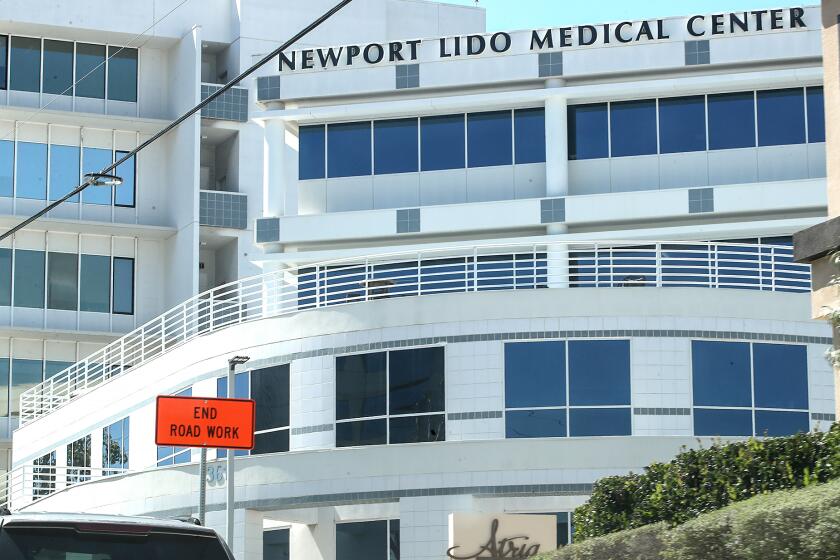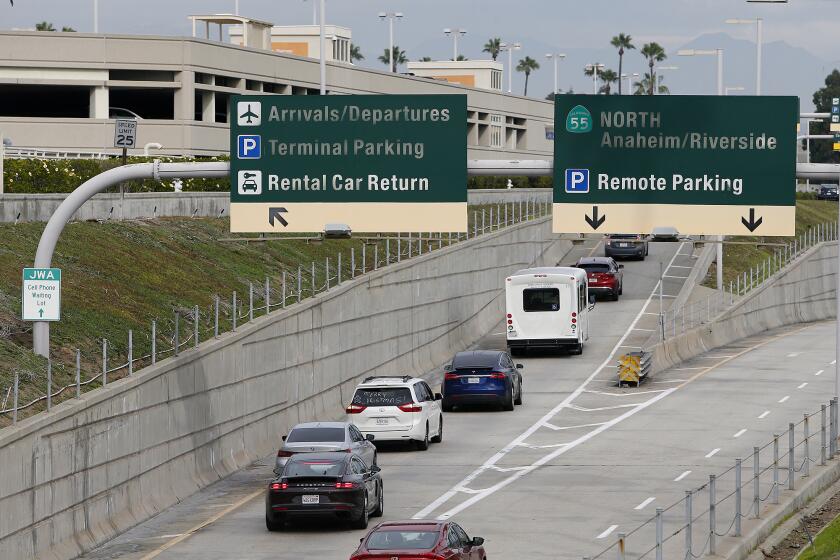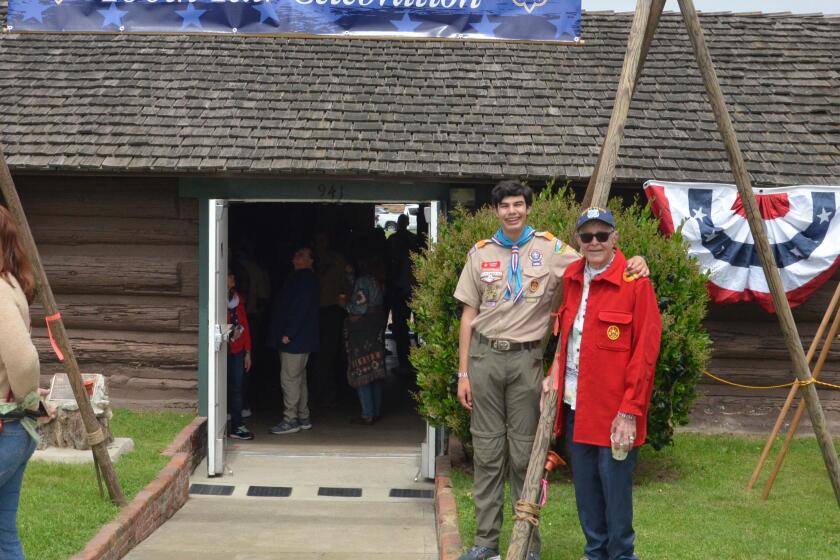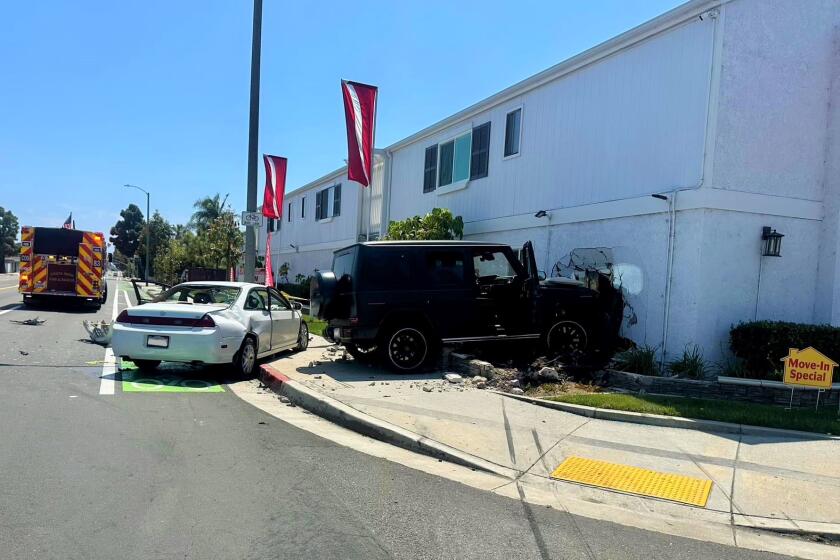How to cope with homelessness? Costa Mesa civic leaders and residents seek solutions
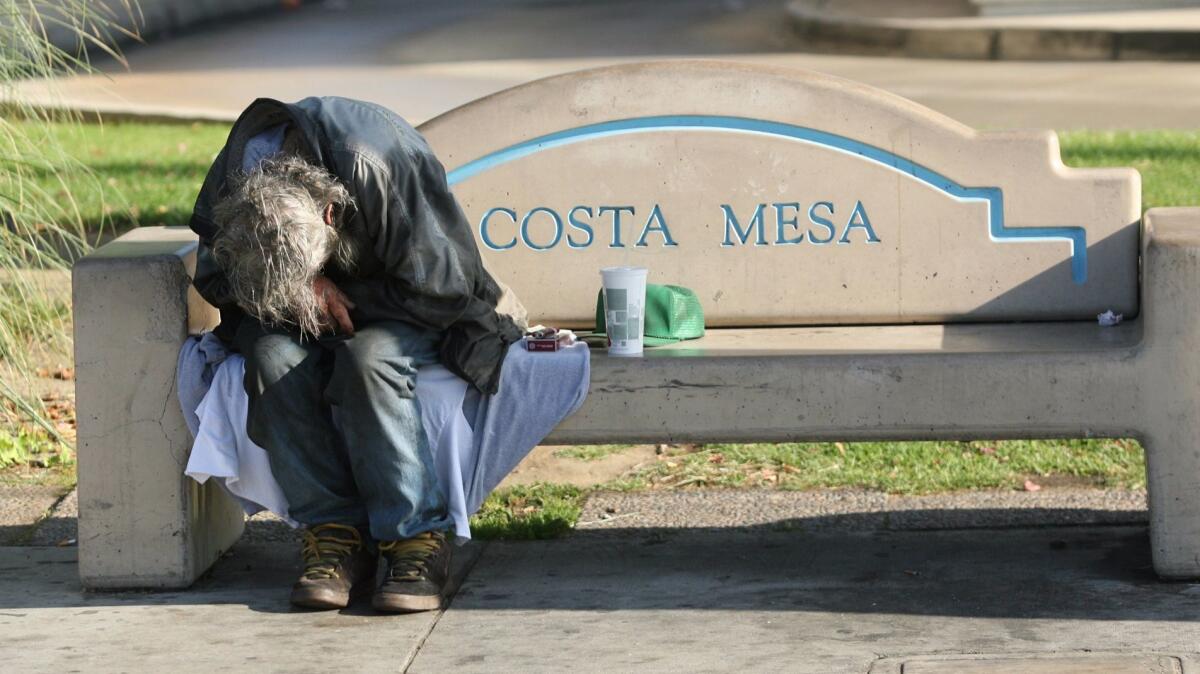
Marie Auten spent two years living in her truck in Costa Mesa in the early 1990s before she realized she was homeless.
“It sneaks up on you,” she said.
Auten, 61, is one of 269 people that Costa Mesa’s Network for Homeless Solutions, made up of city staff, volunteers, community churches, nonprofits and private organizations, have placed in permanent housing since 2013.
After spending years as part of the city’s homeless population, Auten was recently placed in her own apartment in Santa Ana. The amount of space in her new home initially overwhelmed.
“I slept the first few nights in the closet,” she said. “It was just so big.”
Auten shared her story with more than 50 Costa Mesa residents Thursday night at a forum at Newport Mesa Church at Vanguard University. Her talk centered on the strides the city has made to address homelessness and the challenges ahead.
The cause of chronic homelessness in Costa Mesa, the future of Fairview Developmental Center as a site for resources for mentally ill and homeless populations, and the necessity of locking park bathrooms were key items discussed by panelists and attendees.
Assistant City Manager Rick Francis said city officials are seeing a growing number of people who were previously housed in local sober living homes being put on the streets after their insurance runs out or they break a house rule.
In response to the pressing issue, the city Planning Commission last month recommended that operators of group homes and sober-living facilities be required to provide transportation and information on homelessness resources to occupants who are evicted or involuntarily discharged.
The City Council is expected to take up the change at a future meeting.
Francis also points to the cost and availability of housing in Orange County as a factor that adds to cities’ homeless populations.
Only about 12% of Costa Mesa’s homeless population finds housing within the city, according to city statistics.
Most often, people are sent to other areas that have more available housing, which some city officials consider to be a pressing issue.
“The cure to homelessness is housing,” Francis said. “Unfortunately, a lot of people don’t want that housing in their backyard or neighborhood … there’s no other way around it.”
The Fairview Developmental Center, a state-run facility that provides services and housing to people with intellectual and developmental disabilities that opened in 1959, has been identified by city officials and some residents as a place that could serve those who are homeless or mentally ill.
Francis said the fate of the property, which is in the process of being divested by the state, won’t be decided until 2021. The city doesn’t have rights to the land, and the state could decide to use it for another purpose.
Should the state sell the site to a private buyer, the property would come under zoning laws established as part of the recent update to Costa Mesa’s general plan.
The plan specifies that at least 25% of the property be set aside for parks and open space. It caps the number of possible residential units at 582. Institutional and recreational uses also are permitted.
Those rules wouldn’t come into play if the state holds onto the land for its use.
“The whole parcel is not going to become a mega complex to address the county’s homeless problem,” Francis said. “We don’t have a lock on that property.”
Resident Sabyl Landrum expressed concerns about the city’s decision in 2015 to close restrooms at Lions and Wilson parks.
The city made the call in response to concerns the restrooms were becoming hotbeds of drug use and other illegal activities.
But Landrum said the closed restrooms force homeless to relieve themselves in public areas and present an inconvenience to families who use the park.
“It’s a dignity issue for those people, and a dignity issue for my 4-year-old son, who had an accident in the park because there wasn’t a bathroom,” she said.
Francis agreed that locking restrooms is an inadequate long-term solution.
Officials from the city and the Costa Mesa Sanitary and Mesa Water districts have considered installing free-standing public restrooms that would be open to homeless people.
Councilman John Stevens said those discussions will continue in the coming weeks.
“We’re going to look at it and I’m going to own those decisions,” he said. “It’s an issue of sanitation, an issue of dignity and social justice.”
Twitter: @HannahFryTCN
All the latest on Orange County from Orange County.
Get our free TimesOC newsletter.
You may occasionally receive promotional content from the Daily Pilot.

